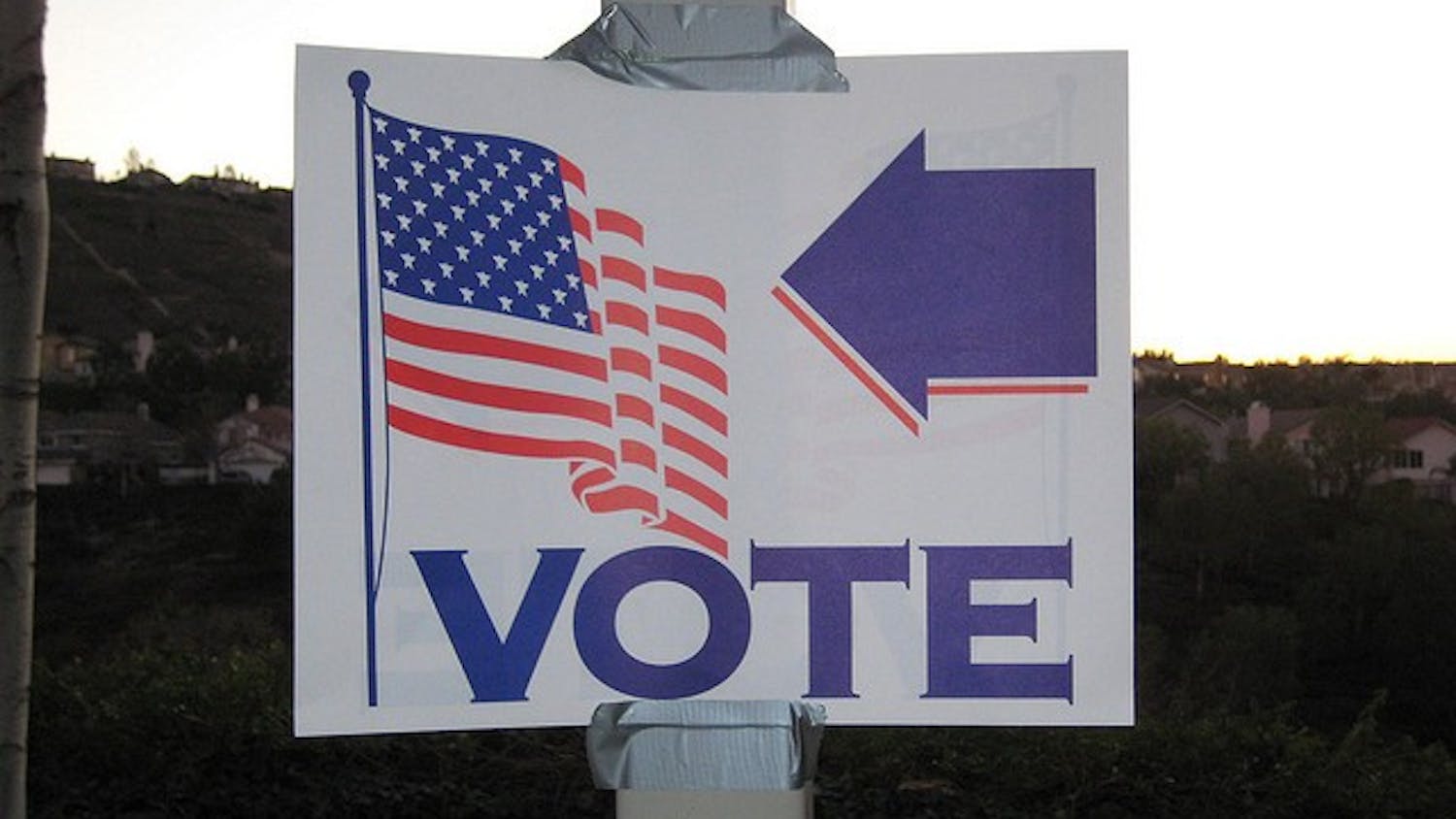It’s a sunny Friday afternoon on the Don Myers Plaza, and American University alum Matt Fagan can’t hide his excitement. Today is the day of AU’s STEAM Fair, where he is showcasing his music app, LightSignature, to the public.
As people pass by, Fagan and his interns give fairgoers the opportunity to try out the app, including several music students at AU. Their reactions are similar: they find the app useful, and several even tell Fagan they would definitely download the app. Lucky for them, after over a year of hard work on Fagan’s part, it’s now available on the App Store.
LightSignature puts music theory right at the fingertips of the user, simplifying what normally would take years of training and memorization, Fagan said. It contains a hardware piano keyboard with lighted piano keys that show users which notes belong to different key signatures and modes, allowing them to play along with a particular piece of music or to even create their own tunes.
“LightSignature is different because it teaches users how to create original music and enables users to improvise, solo and even collaborate with other musicians,” Fagan said.
The app also contains multiple other instruments, such as guitar, cello and clarinet. It is currently a digital prototype for a hardware instrument that Fagan has spent years working to build and manufacture.
Fagan, who graduated with a master’s degree in audio technology from AU in 2017, said he first began developing LightSignature as his master’s capstone at AU when he decided he wanted an easier way to be able to produce music using a piano keyboard. When he realized there were no keyboards in the market that met his requirements, Fagan submitted a provisional patent application and worked with an attorney to have his patent approved.
While taking the capstone course, Fagan was very self driven and required very little assistance, according to his professor Rogerio Naressi.
“From the very start I got the impression that Matt was on top of it,” Naressi said in an email. “He had all the steps planned out and all the core concepts were in place and already being executed ... LightSignature was an excellent demonstration of persistence and good planning and execution.”
Naressi also provided a few suggestions to make the app more interesting for keyboard players like himself. One of them was to allow the software to play back "wrong" notes that do not belong to the specified scale. Another one was to add an option to turn off the lighted keys indicating the correct notes, so the user could learn to rely more on his/her memory and less on visual cues.
Fagan’s interest in music began around 13 years ago, when he started playing guitar and was part of a few bands in middle and high school. He then became involved in electronic music and audio technology in college. Fagan credits AU as a major influence in his success with LightSignature.
“Each course that I took at AU helped advance my knowledge of music and audio technology, and some courses helped bring me much closer to achieving my business goals,” he said.
In particular, the Entrepreneurship Incubator within the Center for Innovation at the Kogod School of Business helped Fagan grow as a business founder and develop his company into a small corporation. According to Incubator co-head Tommy White, the Incubator gives students who already engage in entrepreneurial and technological thinking a place to come and get help with their projects. This assistance includes access to space, coaching, networking and a bit of seed capital.
“Before I was admitted to the Incubator, I did not really have a company. I just had an idea,” Fagan said. “Now that I am a member of the Incubator, I am able to participate in regularly scheduled events that teach me about good business operation practices, thus allowing me to enhance my company and grow my network.”
Incubator co-head William Bellows said entrepreneurs often come to the Incubator at different stages and with different experiences.
“Our role in the Incubator is more like being a coach than a professor,” Bellows said. “In that way, it is always exciting and fulfilling to see someone [like Fagan] start with a goal and work hard at developing their potential, then seeing them make progress in something that is aligned with their dreams.”
White agreed, acknowledging Fagan’s work ethic as a major reason why Fagan has found success.
“Matt is very tenacious,” White said. “He’s someone who listens well, and then takes it to the next level, comes back and says ‘this is what I have achieved, now let’s talk about what my next steps are for moving forward.’ It’s a really great thing to see this in an entrepreneur and a founder.”
Fagan also took on two undergraduate interns through the Incubator and is searching for more interns.
“The Incubator is continuing to be a useful resource for me and I look forward to benefiting as much as I can from the all opportunities that it has to offer,” he said.
Fagan has taken what he learned about audio technology and now teaches others about the craft. This past summer, Fagan worked as an instructor for Digital Media Academy, a technology summer camp with locations all over the U.S. He taught Electronic Music Production and Audio Mixing and Mastering courses to middle and high school aged students at George Washington University, where he discovered that teaching these courses is where he excels.
“I figured I could make a living teaching alongside pursuing my dream of manufacturing my patented invention,” he said. “So, after spending months of receiving at least 40 notifications a day from LinkedIn for jobs with the keyword ‘audio’ in the Washington, D.C. area, and never finding a single job that I actually was interested in, I decided that I wanted to do what I love.”
Fagan owns a company called AudioUnity Corporation, where he gives individual audio production lessons, and is currently developing an after-school electronic music production program in northern Montgomery County and Frederick County. Fagan uses LightSignature in his classes, which his past students have found very useful.
“It makes me feel very accomplished when my students can transform from having no musical experience to being able to produce impressive works of music in a short period of time,” Fagan said.
His students are also able to easily listen to his work and understand his music skills now that his album “Deep Side of the House” has been released, which he has been working on since 2012.
Fagan recently expanded AudioUnity to include a Medical Technology division. He will collaborate with medical professionals to conduct a study in a Kansas hospital that will evaluate how patients and nurses adapt to implementing media players as a routine technology offered to patients. They plan to use this research to create a media player or streaming service product that will be specifically designed to meet the needs of patients and hospital staff.
Fagan’s main goal, however, is to manufacture a hardware piano keyboard version of LightSignature.
“No matter how long it takes, I will achieve it one day, and I will not let anybody step in my way,” he said. “I have already put four years into this venture and it may take another four years until it is on the market. It would be nice if I could have it on the market sometime in 2018, but this is a major project and I am willing to be challenged by and overcome whatever obstacles I am faced with.”





